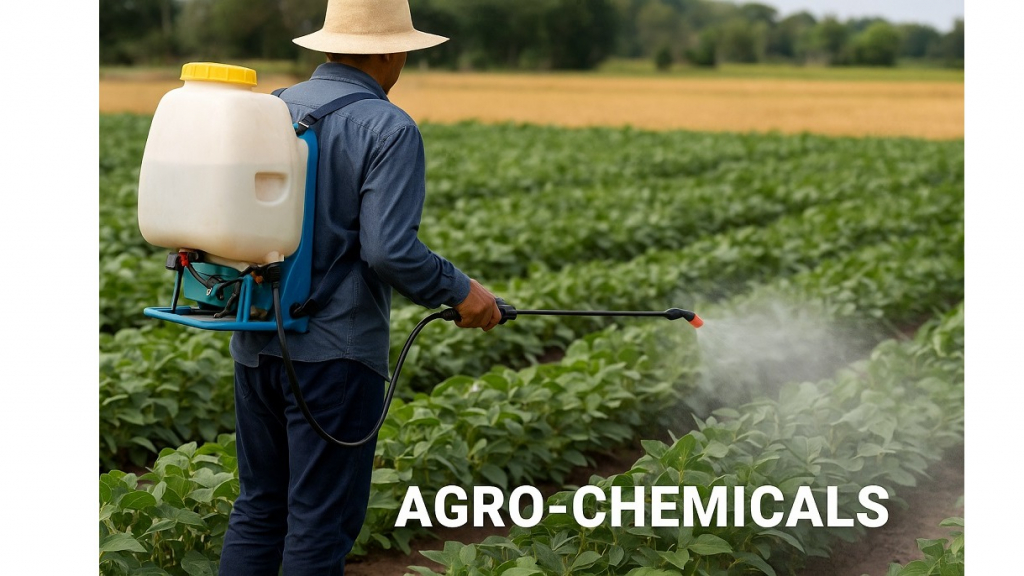1. Strong Import Demand Across CARICOM
Most CARICOM nations are net importers of agro-chemicals like fertilizers, pesticides, herbicides, and fungicides. Agricultural sectors are vital for food security, but the region lacks large-scale domestic agro-chemical production, creating ongoing demand.
Key importing countries:
-
Jamaica (largest agricultural economy in CARICOM)
-
Guyana (large rice and sugarcane industry)
-
Belize (agriculture-driven economy: bananas, sugar, citrus)
-
Suriname (rice, palm oil, bananas)
-
Trinidad & Tobago (limited agriculture but high purchasing power for quality agro-chemicals)
-
Barbados (high demand for eco-friendly and organic-certified products)
Opportunity:
Businesses can export agro-chemicals into these countries, especially products tailored for tropical climates and resistant to high humidity and pests.
2. Specific Agro-Chemicals in High Demand
-
Fertilizers: Urea, NPK blends, organic fertilizers
-
Insecticides: Targeting tropical pests (e.g., aphids, caterpillars)
-
Fungicides: Essential for crops prone to fungal infections (e.g., bananas, cocoa, coffee)
-
Herbicides: Broadleaf weed killers are particularly needed for sugarcane and rice cultivation
-
Seed treatments: To improve germination rates in high-rainfall areas
Eco-friendly and bio-based agro-chemicals are becoming popular due to rising environmental awareness and organic farming trends in Barbados, St. Lucia, and Jamaica.
3. Export Opportunities for CARICOM Producers
Although most countries are importers, some export niche agro-chemical products:
-
Trinidad & Tobago: Small chemical manufacturing sector (potential to export fertilizers or industrial agro-inputs to smaller islands)
-
Guyana and Suriname: Potential for developing bio-fertilizers from agricultural waste (new market)
Opportunity:
Local production initiatives can target smaller CARICOM islands that rely on imports (e.g., St. Kitts & Nevis, Dominica, Grenada).
4. Trade Regulations and Challenges
-
Pesticide and Chemical Control Laws: Strict regulations in most CARICOM countries. Products must often be registered with national agencies (like Jamaica’s Pesticides Control Authority).
-
Import Duties: Agro-chemical imports may face tariffs, but some preferential rates under CARICOM agreements apply if sourced intra-regionally.
-
Environmental Restrictions: Push toward reduced toxicity products. Bans exist on several older-generation pesticides (e.g., DDT-type compounds).
Solution:
Focus on low-toxicity, eco-certified, and CARICOM-registered products to overcome barriers.
5. Fast-Growing Niches
-
Organic farming inputs: Especially in Barbados, Jamaica, and St. Vincent & the Grenadines.
-
Climate-resilient products: Agro-chemicals that protect crops from floods, droughts, or saltwater intrusion.
-
Small packaging: Many farmers are smallholders; there is strong demand for smaller, affordable packaging sizes.
6. Top Supplier Countries
CARICOM imports agro-chemicals mainly from:
-
USA
-
Brazil
-
China
-
Europe (Germany, Netherlands)
Opportunity for new suppliers:
Distributors or manufacturers in CARICOM can create regional hubs to minimize import costs and delivery times, especially for multi-island supply chains.
Summary of Key Opportunities
| Opportunity | Details |
|---|---|
| Import agro-chemicals into CARICOM | Focus on tropical-specific, eco-friendly, small-scale farmer needs |
| Export from Trinidad & Tobago | Fertilizers, industrial agro-inputs |
| Niche markets | Organic farming inputs, bio-fertilizers |
| Regulatory compliance | Register products with local authorities to ease market access |
| Distribution models | Regional hubs with smaller packaging sizes |




Share this via
Or copy link